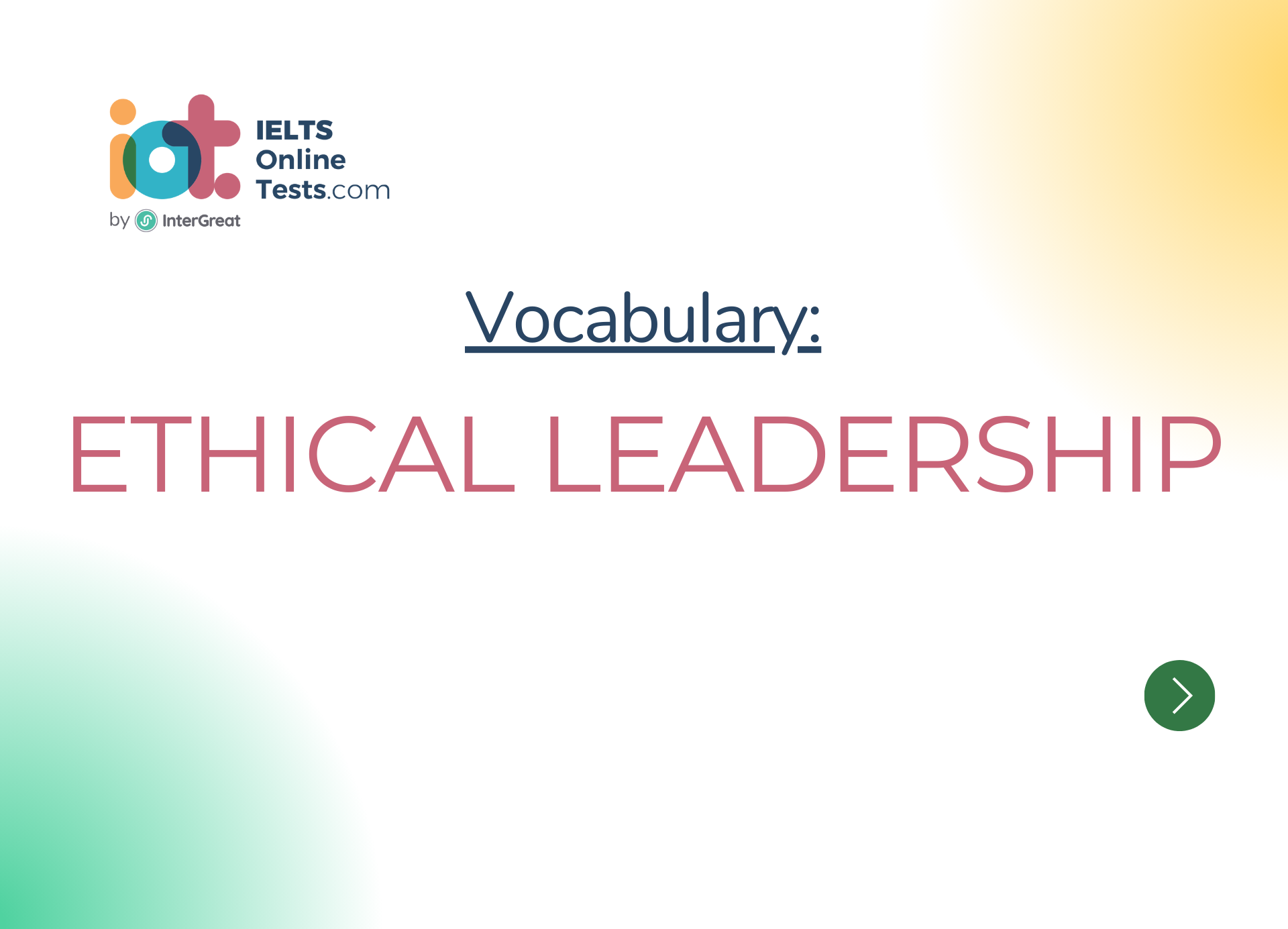
Ethical leadership
Here's a comprehensive list of vocabulary related to ethical leadership for the IELTS band score 4.5-6.0:
Ethics:
Moral principles and values that govern the behavior of individuals and organizations.
Leadership:
The ability to guide and influence others towards achieving common goals.
Ethical Leadership:
Leadership that is guided by principles of integrity, fairness, and responsibility.
Integrity:
The quality of being honest, trustworthy, and having strong moral principles.
Fairness:
Treating all individuals with impartiality and without discrimination.
Responsibility:
Being accountable for one's actions and decisions.
Transparency:
Openness and honesty in communication and decision-making.
Accountability:
Taking responsibility for the outcomes of one's actions and decisions.
Trustworthiness:
Being reliable and deserving of others' trust.
Respect:
Showing consideration and regard for the rights and dignity of others.
Ethical Dilemma:
A situation where a decision must be made between conflicting ethical principles.
Ethical Decision-Making:
The process of making choices based on ethical principles.
Values:
Core beliefs that guide an individual's behavior and attitudes.
Morality:
A person's sense of right and wrong and adherence to ethical principles.
Code of Ethics:
A set of principles and guidelines that govern the behavior of an organization or profession.
Ethical Standards:
The criteria used to assess the ethicality of actions or decisions.
Ethical Behavior:
Conduct that is in line with ethical principles.
Ethical Culture:
The prevailing ethical values and norms within an organization.
Ethical Training:
Education and development programs to promote ethical awareness.
Ethical Compliance:
Adherence to ethical standards and guidelines.
Ethical Awareness:
Recognizing and understanding ethical issues and implications.
Ethical Leadership Model:
A framework for guiding ethical decision-making as a leader.
Ethical Role Model:
A person who sets an example of ethical behavior for others.
Ethical Responsibility:
The duty to make ethical decisions and uphold ethical standards.
Ethical Oversight:
Monitoring and ensuring ethical conduct within an organization.
Ethical Education:
Learning about ethical principles and values.
Ethical Communication:
Open and honest communication that aligns with ethical principles.
Ethical Implications:
The potential consequences of decisions on ethical grounds.
Ethical Judgment:
Making decisions based on ethical considerations.
Ethical Awareness Training:
Programs to develop awareness of ethical issues and dilemmas.
Ethical Leadership Development:
Initiatives to cultivate ethical leadership skills.
Ethical Performance:
Demonstrating ethical behavior and actions.
Ethical Review:
Assessing the ethical aspects of a decision or action.
Ethical Decision Framework:
A systematic approach to making ethical choices.
Ethical Considerations:
Factors and principles taken into account when making ethical decisions.
Ethical Courage:
The bravery to act according to one's ethical beliefs despite challenges.
Ethical Expectations:
The standards of conduct and behavior that are ethically acceptable.
Ethical Sensitivity:
The ability to recognize ethical issues and dilemmas.
Ethical Reflection:
Thoughtful contemplation of ethical matters.
Ethical Accountability:
Taking responsibility for ethical decisions and actions.
Understanding these vocabulary words will help you discuss the importance and implications of ethical leadership in various contexts. Good luck with your IELTS preparation!




